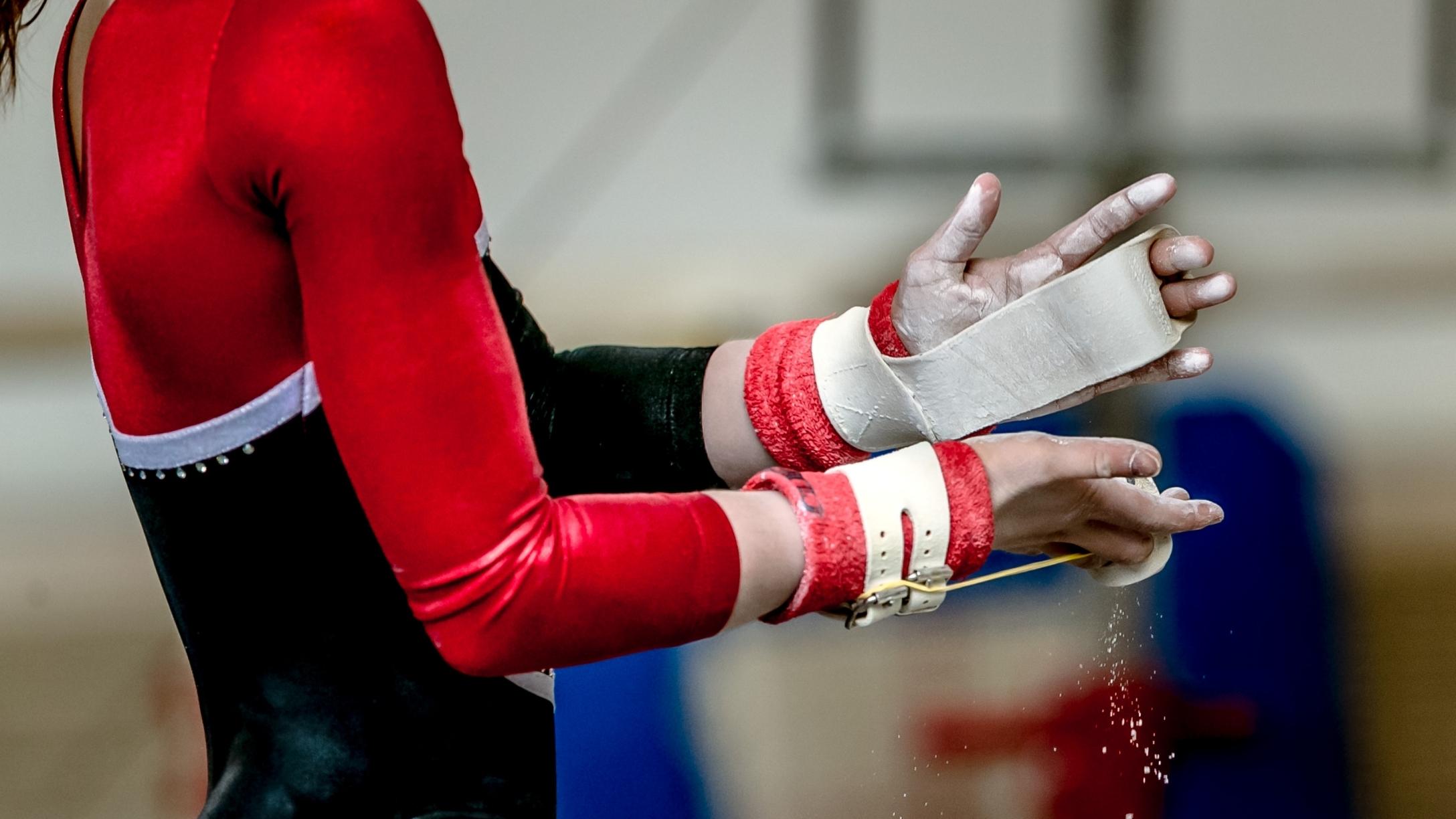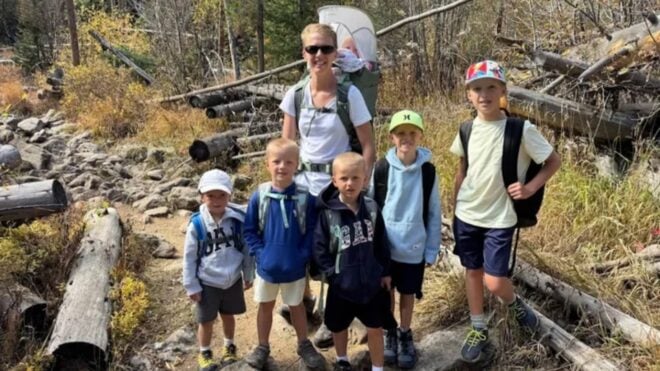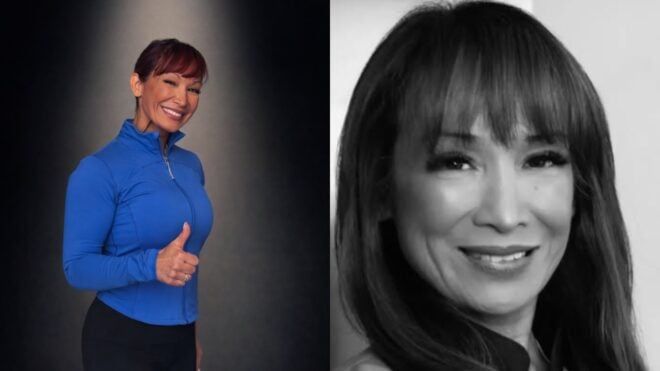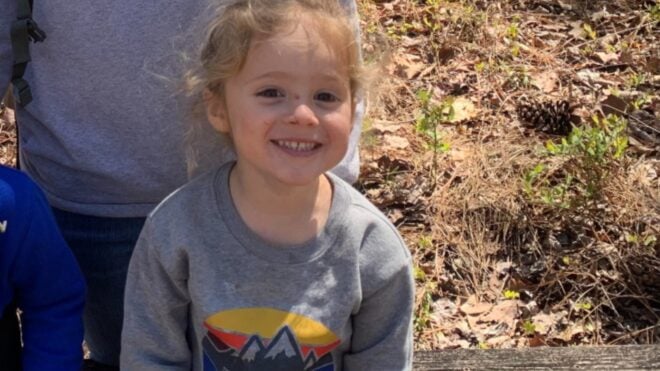
Amelia Cline remembers how much she loved gymnastics as a kid. She also remembers exactly how that love was compromised.
Amelia, now 32, was on track to a promising career in the sport while growing up in Canada. At an early age, she exhausted all the local gyms' abilities and moved on to more prestigious and official gyms for her training. Those around her had faith she'd make it big, but at 13 years old, she walked away from it all.
Amelia explains that things change when she began training with Vladimir Lashin (who would go on to become a national coach) and his wife Svetlana. It wasn't long until a culture of abuse and toxicity became the new normal, as Amelia told CNN.
"Immediately, it was verbally abusive," Amelia shared.
"If you made any mistakes, they would scream and humiliate you. 'This is rubbish, you're rubbish,' screamed at you over and over again."
That was jarring, but nothing like when the physical abuse started.
"I was warming-up [for a standing split] and my hamstring felt really tight, and he got really annoyed," she recalled.
"He said something along the lines of, 'You're just faking, trying to get out of doing this stretch,' so he turned me around, grabbed my leg and forced it behind my ear."
Amelia, then about 12-years-old, was in unbelievable pain.
"It snapped my hamstring completely and took part of my pelvis with it," she said. While she panicked, her coach seemed unbothered.
"He was angry, he screamed at me. There was no offer of medical treatment, no one called my parents. I think I ended up having to limp to the change room myself and call my parents to take me to the hospital."
The training schedule Amelia abided by was grueling. She would start her day by going to school, then train from 1 to 6 pm. She'd then go home to focus on homework. Many weeks, she'd be in the gym 30 hours or more.
The physical abuse was constant. Lashin guided her to permanently hyperextend her legs so that her knees wouldn't appear to buckle on landings. To do so, he placed her feet elevated on a box, keeping her legs raised from the floor, and then he'd sit on her knees. She believes he weighed about 200 pounds at the time.
The situation came to a head when just 2 months after the hamstring injury, Amelia was still being forced to train for three to four hours a day. The night before national trials, Lashin asked her to try a Yurchenko double pike. It's widely regarded as one of the most dangerous vault moves in the sport, where the gymnast does a blind backhand spring onto the vault.
"I think I laughed," she recalled.
"I thought he was kidding because it was so absurd that he would even be expecting me to do this when I was still injured — I hadn't been vaulting for weeks."
Amelia asked him to spot her and he reluctantly agreed.
"Even that was almost a total disaster, I landed pretty much on my face," she shared.
Then, he demanded she do it again.
"It was disastrous, my feet didn't hit the springboard properly, so I didn't get enough momentum to get up onto the vault and I didn't have enough momentum to make the rotation at the end," Amelia explained.
"I landed on my neck."
"I had to take stock of whether I could still move my limbs," she continued, explaining she had fallen on hard competition mats.
"Thankfully, I could, but then I realized that he was still screaming at me and telling me to do it again and again. There was no way I could say no to that request."
He demanded she try one more time. It would be the last time in her career.
"I completely missed one hand off the vault and landed on my head again. I was crying in the change room with ice on my neck when he demanded that I come back out onto the floor," she said.
"Then he forcibly took me by the arm and dragged me into his office and forced me to stand on the scale. 'This is why you can't do it!' He interrogated me about what Easter candy I had eaten."
Though that was when she decided to walk away, it wasn't the end. By that point, she and other affected athletes had endured a bit of coaching and encouragement to not share the details of their training with their parents.
"We were counselled on how to avoid talking to our parents about it, it was made very, very clear that we would be in significant trouble if we told our parents what was going on," Amelia said.
"If these things were happening in a school or at a home, there would be serious consequences almost immediately. But for some reason, when we put it in the context of a sport and particularly gymnastics, we normalize it to such a degree that we completely lose sight of the fact that this is child abuse. This is straight up child abuse."
Amelia has had debilitating back pain since the age of 14. She has arthritis in her neck and suffers from nightmares. She also has to work vigilantly to stick to healthy eating patterns.
"I don't weigh myself," she revealed.
"I can never get on a scale. Even if I'm at the doctor, I ask them not to tell me the number. It has required constant vigilance to make sure that I'm not slipping into really harmful eating patterns. I've talked to dozens and dozens of girls and boys and they very much struggle in adulthood, whether it's eating disorders or PTSD or depression or self-harm addiction. And, of course, the debilitating physical pain. This doesn't just stop because someone has quit the sport, it's something that's going to continue to plague these people for the rest of their lives."
There is a class-action lawsuit against Gymnastics Canada, where many victims of abuse hope to get justice for what they endured. They're calling for the organization to be accountable for elevating these and other abusive coaches in pursuit of accolades.




